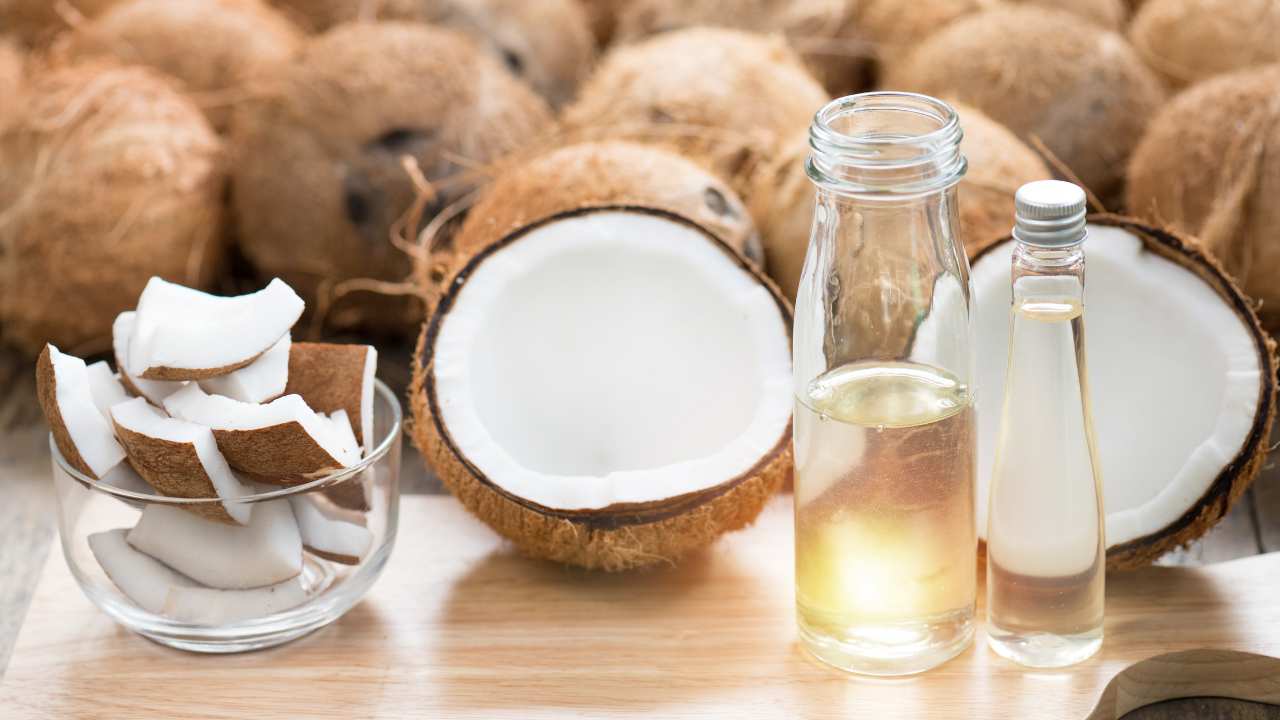When it comes to cooking, the type of oil you choose plays a significant role in both the flavor and the health benefits of your meal. Oils are essential in a variety of culinary applications, from sautéing and grilling to baking and dressing salads. However, with so many different options available, selecting the right oil for the task at hand can be overwhelming.
In this guide, we’ll explore the best oils for cooking, grilling, baking, and other culinary uses. Each oil has unique characteristics, and understanding these differences will help you make the right choice for every occasion.
1. Olive Oil: The All-Purpose Hero
Olive oil is widely regarded as one of the healthiest oils available. It is rich in monounsaturated fats, which are known to promote heart health and reduce inflammation. Olive oil also contains antioxidants that contribute to its anti-inflammatory properties.
Best Uses:
- Cooking: Ideal for sautéing and stir-frying.
- Grilling: A great choice for grilling vegetables and meats, as it can withstand medium-high heat.
- Baking: Adds a mild, fruity flavor to baked goods like cakes and breads.
- Dressing: Perfect for salad dressings and drizzling over dishes.
Tip: Use extra virgin olive oil for the best flavor and health benefits.
2. Avocado Oil: High-Heat Cooking Master
Avocado oil has gained significant popularity in recent years due to its high smoke point and impressive nutritional profile. It contains heart-healthy monounsaturated fats and is packed with vitamin E, an antioxidant that supports skin health and reduces oxidative stress.
Best Uses:
- Cooking: Excellent for high-heat cooking methods like frying and searing due to its high smoke point (around 520°F/271°C).
- Grilling: Ideal for grilling meats, poultry, and vegetables.
- Baking: Great for making moist cakes and muffins.
- Dressing: Adds a buttery flavor to salads and dips.
3. Coconut Oil: A Versatile Choice
Coconut oil is a popular oil with a distinct flavor and a solid texture at room temperature. It’s high in saturated fats, particularly medium-chain triglycerides (MCTs), which may offer certain health benefits, including improved brain function and increased fat burning.
Stay Connected With Google News
Best Uses:
- Cooking: Works well for sautéing, frying, and even in certain dessert recipes.
- Grilling: Can be used for grilling vegetables or meats to add a tropical twist.
- Baking: Ideal for vegan or dairy-free baking, adding richness to cakes, cookies, and pies.
- Beauty: Can also be used as a moisturizer for skin and hair.
4. Canola Oil: A Neutral Option
Canola oil is a mild-tasting, vegetable-based oil that is commonly used in cooking and baking. It is low in saturated fat and high in omega-3 fatty acids, making it a heart-healthy choice.
Best Uses:
- Cooking: Suitable for stir-frying, sautéing, and deep frying.
- Baking: Perfect for cakes, muffins, and cookies, as it has a neutral flavor that won’t overpower other ingredients.
- Grilling: Works well as a grilling oil for meats, fish, and vegetables.
5. Sesame Oil: Bold Flavor for Stir-Frying
Sesame oil, particularly the toasted variety, is a staple in Asian cooking, offering a bold, nutty flavor. It is rich in antioxidants, and its sesame lignans have been linked to improved cholesterol levels.
Best Uses:
- Cooking: Great for stir-frying, especially in Asian-inspired dishes.
- Grilling: Use for brushing on grilled meats or vegetables to add a unique flavor.
- Dressing: Perfect for dressing Asian salads or drizzling over dishes for an extra flavor kick.
6. Peanut Oil: Ideal for High-Heat Cooking
Peanut oil is a popular choice for frying and high-heat cooking due to its high smoke point. It has a mild flavor that complements a variety of dishes, and its high oleic acid content makes it a relatively healthy fat option.
Best Uses:
- Cooking: Perfect for deep frying, stir-frying, and pan-frying.
- Grilling: A good option for grilling poultry and meats.
- Baking: Can be used in baking when a neutral, mild flavor is desired.
7. Grapeseed Oil: A Light and Healthy Option
Grapeseed oil is a light, neutral-flavored oil that is rich in polyunsaturated fats and antioxidants. It has a relatively high smoke point, making it suitable for various cooking techniques.
Best Uses:
- Cooking: Ideal for sautéing, frying, and pan-searing.
- Baking: Works well in recipes that require a neutral oil.
- Grilling: Can be used for brushing over meats and vegetables before grilling.
Trusted Sources Link-https://nutritionsource.hsph.harvard.edu/
Conclusion
Choosing the right oil for cooking, grilling, or baking is essential for achieving the best flavor and nutritional benefits. Whether you’re looking for something versatile like olive oil, a high-heat champion like avocado oil, or a bold flavor enhancer like sesame oil, each oil offers unique qualities to enhance your dishes.
By understanding the specific characteristics and uses of these oils, you can make informed decisions and elevate your cooking to the next level. Remember to also consider your dietary needs and personal preferences when selecting oils for your meals.
FAQs:
- What is the healthiest cooking oil?
Olive oil is often considered one of the healthiest due to its high content of monounsaturated fats and antioxidants. - Can I use olive oil for grilling?
Yes, olive oil is great for grilling at medium to medium-high heat. However, extra virgin olive oil should be used for flavoring or drizzling after grilling, not for very high-temperature grilling. - Which oil is best for baking?
Canola oil and avocado oil are both excellent options for baking, as they have mild flavors and work well in a variety of baked goods. - Is coconut oil healthy for cooking?
While coconut oil is high in saturated fat, it contains medium-chain triglycerides (MCTs), which have been shown to provide certain health benefits. Use it in moderation for specific recipes, especially in baking and frying. - What’s the difference between refined and unrefined oils?
Refined oils have been processed to remove impurities and have a higher smoke point, making them suitable for high-heat cooking. Unrefined oils, on the other hand, retain more nutrients and flavors but have a lower smoke point.Article Sources and References :-10 Foods to Avoid if You Want to Fight Cancer Does Cooking Oil Cause Cancer? What Are the Names of Cooking Oils? Olive Oil Benefits for Females: Health, Beauty, and Wellness




